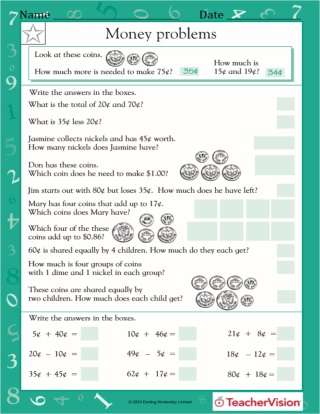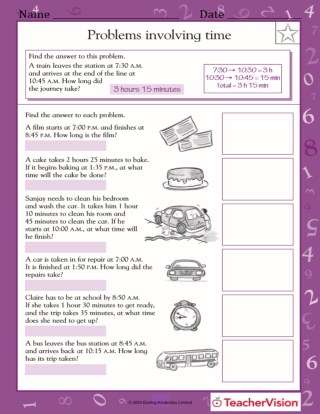Solve

Learning goal: Problem solving
The ability to quickly and effectively solve problems plays a major role in classroom, college, and career success. Help your students develop these essential skills using the FutureFit resources collected under the “Solve” domain. Skills highlighted in this domain include process acumen, computational thinking, and design thinking.
At the practical level, Solve focuses on skills and abilities that blend well with both core academic concepts and broader social-emotional learning goals articulated by standards organizations, states, and researchers. We’ve meshed the best and most relevant concepts and approaches into an accessible list of skills that is easy to understand and articulate to students, including:
- Computational thinking: The ability to effectively formulate and frame problem-solving strategies that can be applied and carried out by computers, machines, or humans
- Process acumen: The ability to clearly and effectively define and implement replicable processes, as well as to communicate the associated tasks, roles and details to others
- Design thinking: The ability to learn and apply techniques common in solving complex problems (i.e. in engineering and science) to disparate or tangential circumstances and situations
- Solicit assistance: The ability to ask for help, assistance and expertise when one’s own limits become an impediment to progress
Recommended Solve Resources
-
TEACHING RESOURCE
Pattern Problem Solving: Teach Students to Find a Pattern in Math Problems
Pattern analysis is a critical 21st Century skill Pattern problem solving is a fundamental mathematical strategy that i... -
LESSON PLANS
Why Do Some Objects Fall Faster Than Others?
Put Galileo's theories to the test with bricks and feathers! Introduce your pupils to the fundamentals of gravity with ... -

TEACHING RESOURCE
Problem-Solving
Help your students learn how to overcome issues independently by integrating problem-solving skills into your lesson pla... -
ACTIVITIES
Math Problem Solving: The Guess and Check Method
Teach students the same technique research mathematicians use! (Seriously.) "Guess and Check" is a problem-solving stra... -
LESSON PLANS
Which Metal Corrodes the Fastest?
Time-lapse experiment that's great for a unit on states of matter Students test a variety of metals in water and salt w... -
LESSON PLANS
Do Objects Float Better in Salt Water Than in Fresh Water?
Will a bottlecap really float in salt water?Students will learn about density and surface tension with this printable sc... -
TEACHING RESOURCE
Problem Solving: Draw a Picture
Problem-solving is a critical 21st Century and social-emotional skill The "draw a picture" strategy is a problem-solvin... -
TEACHING RESOURCE
Problem Solving: Choose the Operation
The process of "choosing the operation" involves deciding which mathematical operation (addition, subtraction, multiplic... -
LESSON PLANS
Salt or Sugar: Which Dissolves Faster in Different Liquids?
Easy and fun hands-on chemistry experiment Students learn about molecules and solutions with this hands-on science acti... -

TEACHING RESOURCE
Analyzing Data
Help your students learn a critical 21st Century skill Data analysis is the process of interpreting the meaning of the ... -
LESSON PLANS
In Which Liquids Do Seeds Grow Best?
Green thumbs for everyone! Teach your pupils about horticulture and hydroponics with this hands-on printable science ac... -
_0.jpg)
LESSON
Easily Integrate SEL Into Your Existing Curriculum
Looking for ways to incorporate social-emotional learning, character education, and life skills into your traditional ac... -
LESSON PLANS
Practicing Problem Solving Lesson
-
LESSON PLANS
Does It Matter How Much Air Is in Your Basketball?
Help students get a "handle" on understanding air pressure Students observe how different levels of air pressure affect... -

TEACHING RESOURCE
Problem Solving: Make a Table Math Strategy
Make a Table is a problem-solving strategy that students can use to solve mathematical word problems by writing the info... -

WORKSHEETS
Money Word Problems I (Grade 2)
Promote real-world problem-solving skills Covers addition, subtraction, and fractions Includes answer key and Future... -
LESSON PLANS
What Materials Conduct Static Electricity Best?
Learn about electricity in this "shocking" science experiment! In this hands-on science project, pupils build their own... -
LESSON PLANS
Problem Solving: Use a Formula
Using a Formula is a problem-solving strategy that students can use to find answers to math problems involving geometry,... -
LESSON PLANS
What Foods Attract Ants?
A creepy-crawly science project with legs! Students learn about ants and how they are able to locate food with this pri... -
TEACHING RESOURCE
Problem Solving: Eliminating Possibilities
Eliminating Possibilities is a problem-solving strategy in which students remove possible answers until the correct answ... -
TEACHING RESOURCE
Problem Solving: Simplify the Problem
When a problem is too complex to solve in one step, it often helps to divide it into simpler problems and solve each one... -
LESSON PLANS
Can Cloning Make a Better Plant?
Teach your students about cloning with this hands-on science activity. Students clone plants through leaf cutting, buddi... -

WORKSHEETS
Word Problems Involving Time I (Grade 5)
Help your students understand time! These word problems involving time require students to add or subtract hours and min...


